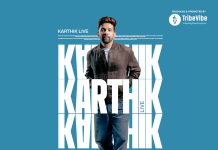India’s wedding industry, now valued at USD 130 billion, is witnessing a major shift as destination weddings emerge as a key growth engine. The destination wedding segment alone, worth USD 16.25 billion in 2024, is projected to reach USD 55.39 billion by 2033 at a CAGR of 14.8%. This growth is being fueled by the rise of curated, multi-day wedding journeys that integrate travel, hospitality, and guest experiences as central elements of celebration.
One of the biggest changes is the way budgets are being allocated. Nearly 40–50% of high-end wedding spending now goes toward hotels, venues, and guest travel. CoTrav’s experience across 50–60+ destination weddings from Rajasthan and Uttarakhand to Dubai, Bali, and Sri Lanka shows how end-to-end travel planning has quietly become the backbone of modern weddings. This aligns with wider national trends, where destination weddings grew from 18% in 2022 to 26% in 2024, and average spends increased from ₹36.5 lakh for local weddings to ₹51.1 lakh for destination celebrations. Nearly 9% of Indian weddings now cross the ₹1 crore milestone, and over 60% of these are destination-led, indicating a clear shift toward premium hospitality-driven formats.
In-demand domestic locations like Jaipur, Udaipur, Goa, Mussoorie, Kerala, and Rishikesh continue to perform strongly, while international favourites such as Dubai, Thailand, Bali, and Sri Lanka benefit from smoother visa norms and competitive group travel options. CoTrav’s observations also highlight a sharp rise in hotel rates during peak seasons due to higher demand, limited inventory, and resort buyouts becoming more common.
Another prominent trend is the rise of multi-destination wedding journeys, where families design celebrations across multiple cities or even countries to offer varied themes, landscapes, and guest experiences. Parallelly, entertainment and artist movement has become a specialised operational component, with travel and stay arrangements for performers, DJs, technicians, and production crews now forming a significant portion of planning.
Guest experience has become a defining benchmark of premium weddings. Families increasingly prioritise personalised welcome desks, well-trained hospitality teams, seamless group check-ins, airport shuttles, and coordinated guest movement. The smoother the logistics, the more successful the celebration feels making travel management a core differentiator for wedding planners.
Mid-week weddings are gaining preference as well, with families opting for weekdays to access better hotel inventory, secure lower rates, and ensure smoother execution. International destinations are also witnessing higher demand due to easier visa processes and strong hospitality infrastructure, reducing friction for large travelling groups.
Overall, the modern Indian wedding has evolved into a sophisticated travel-led celebration. As travel, logistics, and hospitality become the structural pillars of planning, companies like CoTrav are redefining how weddings are designed, delivered, and experienced—not just as ceremonies, but as immersive journeys that families cherish long after the celebrations end.




